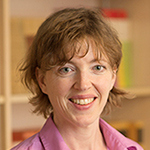Rima Wilkes on the tragedy of Indian residential schools and the importance of the Truth and Reconciliation Commission of Canada’s National Event in Vancouver
Two years ago, Associate Prof. of Sociology Rima Wilkes listened to the testimony of Indian residential school survivors at an event organized by UBC’s First Nations House of Learning.
The moving accounts sparked Wilkes to launch a campaign across UBC’s Vancouver campus, raising the matter in departmental meetings where she informed staff and faculty about how and why they should engage in reconciliation efforts.
On September 18, UBC’s Vancouver campus is suspending classes to encourage staff, faculty and students to participate in events related to the TRC hearings. Wilkes reflects on the significance of Indian residential schools.
Why does reconciliation matter?
I think this is the foundation of the entire country. Canada is built on these relationships, between Aboriginal and non-Aboriginal people. Indian residential schools were a great injustice. It would be a further injustice to act like it didn’t happen, not know about it and not listen to what people have to say.
How does this period in Canada’s history impact non-Indigenous people?
Most non-Indigenous people, including myself, had nothing to do with the implementation of Indian residential schools. But it matters because of the inequalities that continue to exist today. I may not have had anything to do with it, but the fact that I own land in Vancouver might have everything to do with it. It’s not about whether or not you were personally responsible, but in indirect ways all non-native people are benefiting from that subjugation.
How did hearing the testimonies of residential school survivors affect you?
The testimonies made me think about the communities that had no children in them and what that would have been like. What was the impact on communities that all of a sudden didn’t have people ages five to 16 in them? You think about your own children. It’s devastating.
Why are you so passionate about this issue?
My mother was a Holocaust survivor, not in a concentration camp, but who escaped to Canada during the Holocaust era. When that time in history is discussed, you’re speaking to people, and it’s not just Jewish people who should hear about it. It makes you stop and think: is it the responsibility of Jewish people to mobilize non-Jewish people to know about the Holocaust? That sort of applied to this case too. Surviving Indian residential schools is not my story to tell, but should the indigenous people who went through it have to mobilize to get others to listen?
Rima Wilkes is an associate professor in the Department of Sociology. She teaches Canadian Society. Her classes will attend the National Event on Sept. 18.
Find other stories about: Dept. of Sociology, Our Truth, reconciliation, Rima Wilkes

